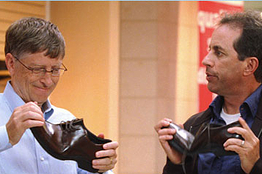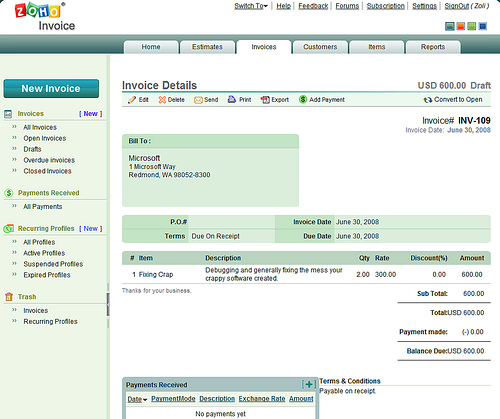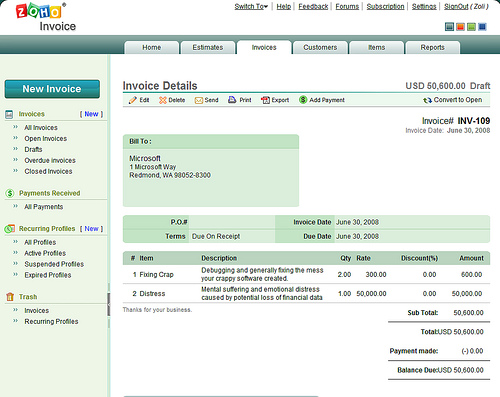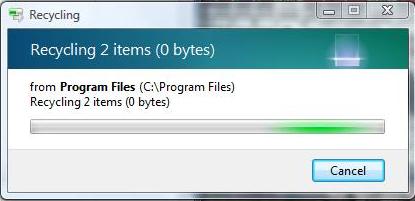If you love Windows XP, you’ll hate Windows 7 – says Ed Bott on ZDnet. Windows 7: Mojave My Ass –complains Jason Perlow. Dwight Silverman confirms: Sorry, but Windows 7 isn’t a return to Windows XP, while others don’t refrain from some name-calling.
Sorry guys, you’re all wrong.
You’re debating the merits of an operating system based on it’s UI. Sure, if you migrate from XP to Win7, some of the changes can be confusing – but it’s an initial change, the learning curve is not that steep. I actually side with Ed Bott here, the search box to launch programs is a more user-friendly approach than having to remember the names of all *.exe files a’la XP.
But it does not really matter. Mojave my ass? Mojave was a bogus experiment (in fact a PR blitz dressed up as an experiment) showing happy “users” who liked the Vista UI – but hey had no chance to assess what fails in a short demo, and that’s what doomed Vista, not appearances.
Windows in all flavors, be it XP, Vista or 7 is not an application. It’s a friggin’ operating system whose job is to get us into applications and get out of the way. In today’s flurry of blog posts Adrian Kingsley-Hughes has the right approach, presenting performance tests – yes, performance is key to judging how good an operating system is.
The other key criteria is how invisible it stays. Think about it: any time you have to get down to OS level typically means something does not work right. It’s the stupid unexplainable little things like:
- Vista and XP computers not finding each other on a home network until you apply an undocumented patch to the XP machines
- Simple copy or delete operations taking forever
- Not being authorized to move / delete files on my own computer even after elevating to Admin mode, killing UAC and a number of weird cryptic options that take an IT deapartment to deal with, not a home user
- Windows upgrade failing if more than 3GB memory is installed
- The latest Windows upgrade causing printer and camera drivers from several vendors reinstall themselves (some take 30 minutes or more, kinda big deal)
- …
The list could go on, but I think you get my drift: Windows 7 (and any other OS) will be judged on how well computers will run, let users interact with real application without having to touch the OS itself.
Finally, to address the speculation about Windows 7 upgrade paths, let me just reiterate this:
- Win7 should be released as Vista Final (meaning it works)
- It should be provided it as a free upgrade to Vista
- It should come with a letter of apology to all Vista victims
OK, I know we have fat chances for the apology – but I really mean the free upgrade part.
(Cross-posted from CloudAve – to stay on top of Cloud Computing news, analysis and just our opinion, grab the CloudAve Feed here.)

 PDC has shown that Microsoft is now eager to forget about Vista, a bad dream, fully focusing on Windows 7. They must have realized that no multi-million-dollar marketing campaign can fix Vista’s badly tarnished reputation.
PDC has shown that Microsoft is now eager to forget about Vista, a bad dream, fully focusing on Windows 7. They must have realized that no multi-million-dollar marketing campaign can fix Vista’s badly tarnished reputation.
 You’d think at least Microsoft’s own products are compatible with Vista. Well, sort of. MS Money users who converted from Quicken may be out of luck.
You’d think at least Microsoft’s own products are compatible with Vista. Well, sort of. MS Money users who converted from Quicken may be out of luck.


 My poor experience was with MS Money 2007, but with Money Plus, the 2008 version of the product line Microsoft shows true ignorance to users’ legacy data needs. Money Plus comes in four editions: Essentials, Deluxe, Premium, and Home & Business.
My poor experience was with MS Money 2007, but with Money Plus, the 2008 version of the product line Microsoft shows true ignorance to users’ legacy data needs. Money Plus comes in four editions: Essentials, Deluxe, Premium, and Home & Business.


 Great performance has always been an obsession at Google and it’s something that we think about and work on everyday. We want Gmail to be really fast, and we keep working on ways to make it faster
Great performance has always been an obsession at Google and it’s something that we think about and work on everyday. We want Gmail to be really fast, and we keep working on ways to make it faster


Recent Comments